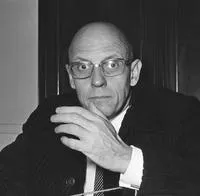
Michel Foucault: Power and Knowledge
Introduction
Michel Foucault, a profound 20th-century philosopher, is best known for his critical studies of various social institutions and his theories on the relationship between power and knowledge. His work has had a significant impact on a wide range of disciplines, including sociology, cultural studies, and literary theory.
Life and Historical Context
Michel Foucault was born in 1926 in Poitiers, France. He studied philosophy and psychology at the École Normale Supérieure in Paris. His career was marked by his radical approach to the study of history and society, focusing on the ways in which power and knowledge intersect and shape human behavior. Foucault's ideas were deeply influenced by his own political activism and the social upheavals of the 1960s and 1970s.
Key Ideas and Philosophical Contributions
Foucault's philosophy revolves around the analysis of power structures and the ways they influence knowledge and societal norms.
Power/Knowledge: Foucault argued that power and knowledge are intertwined, with power producing knowledge and knowledge reinforcing power. This relationship is evident in institutions such as prisons, hospitals, and schools.
Biopower: This concept refers to the practice of modern states and their regulation of their citizens through "an explosion of numerous and diverse techniques for achieving the subjugations of bodies and the control of populations."
Disciplinary Power: Foucault examined how institutions exert control over individuals through surveillance and normalization, creating "docile bodies" that conform to societal expectations.
Archaeology of Knowledge: Foucault's method of analyzing historical discourses to uncover the rules and structures that govern the production of knowledge in different periods.
Genealogy: A historical technique used by Foucault to trace the development and transformations of power relations and their impact on knowledge and social practices.
Influence and Legacy
Foucault's work has profoundly influenced various fields, including sociology, anthropology, cultural studies, and critical theory. His ideas on power, knowledge, and discourse have been instrumental in shaping contemporary social theory and research. Scholars like Judith Butler and Gilles Deleuze have expanded on Foucault's theories, applying them to issues of gender, sexuality, and identity.
Notable Works
Foucault's writings offer a comprehensive exploration of his theories and their applications:
Discipline and Punish: The Birth of the Prison: Analyzes the development of the modern penal system and its role in shaping social norms and individual behavior.
The History of Sexuality: Explores the relationship between power, knowledge, and sexuality, challenging traditional views on the subject.
Madness and Civilization: Investigates the history of mental illness and the social and institutional responses to it.
The Archaeology of Knowledge: Introduces Foucault's methodology for analyzing historical discourses and the production of knowledge.
Society Must Be Defended: A series of lectures examining the concept of biopower and its implications for modern society.
Conclusion
Michel Foucault's exploration of power and knowledge provides a critical framework for understanding the dynamics of societal institutions and their impact on human behavior. His innovative methodologies and theoretical insights continue to inspire and challenge scholars across various disciplines, encouraging a deeper examination of the structures that shape our world.
Further Reading and External Links
- Foucault, Michel. Discipline and Punish: The Birth of the Prison. Archive.org
- Foucault, Michel. The History of Sexuality. Archive.org
- Foucault, Michel. Madness and Civilization. Archive.org
- Foucault, Michel. The Archaeology of Knowledge. Archive.org
- Foucault, Michel. Society Must Be Defended. Archive.org
- Stanford Encyclopedia of Philosophy: Michel Foucault
- Internet Encyclopedia of Philosophy: Michel Foucault
- Encyclopedia Britannica: Michel Foucault
This article aims to provide a comprehensive overview of Michel Foucault's philosophy, encouraging further exploration and understanding of his profound contributions to human thought.